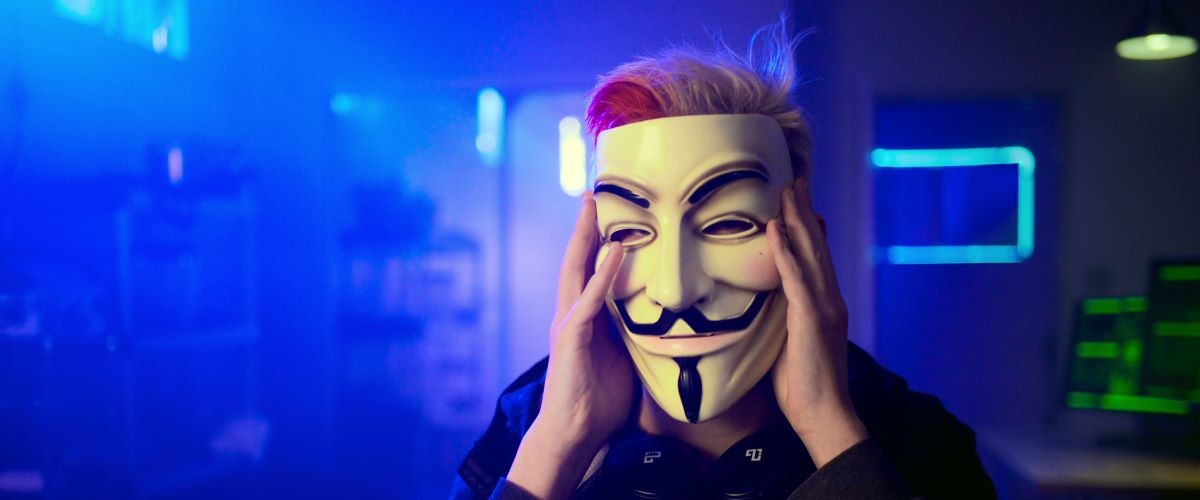There has been a growing subgenre of non-fiction films that I jokingly call “Internet Bad” movies. The worst of these feel like shallow fearmongering, playing up the fears of older viewers like a modern “Reefer Madness.” Part of the problem with this subgenre is that too many filmmakers try to paint something as complex as the internet and technology in general with a very broad brush. The truth is that our technological revolution is way too complex for most feature films to begin to capture or even really comment on, especially as it’s shifting every day, so doc filmmakers end up not saying anything by trying to say too much. “The Antisocial Network: Memes to Mayhem” has a little bit of this problem as it traces the impact of 4chan from Rickrolling to the insurrection, but it’s more engaging than a lot of this doc subgenre by virtue of the filmmaking acumen of directors Giorgio Angelini (“Owned: A Tale of Two Americas”) and Arthur Jones (“Feels Good Man,” one of the best films in this category, by the way).
Like so many things that the internet poisons, 4chan started innocently enough, a community for people with shared interests to come together. One of the interesting tidbits learned in “The Antisocial Network” is how this system essentially followed another down the rabbit hole to toxicity as 2chan had been turned into a political nightmare in Japan. The early days of 4chan are almost lovingly memorialized, a time when people were fascinated by an online presence named “moot,” aka Christopher Poole, who would go on to become the Mark Zuckerberg of this organization. Seeing the early in-person meetings is fascinating, as is watching the groups fracture as more and more people wanted to make an offline impact through pranks that ultimately developed into the work of Anonymous and the QAnon conspiracy nuts. There’s a cautionary tale in the inherent flaws that come in this kind of shitposting and trolling in terms of escalation. When the trolls of 4chan, some of whom are interviewed here, got away with one thing then it would only lead to the desire to do something more impactful or crazier in the future.
For better or worse, “The Antisocial Network” seems reticent to point fingers, almost taking the stance that the kind of unchecked power that was held by 4chan was destined to corrupt and so we shouldn’t really blame any of the people caught in this spider web. It sometimes feels like a few people, including one being interviewed, are let off the hook in terms of personal responsibility in a way that can be frustrating. These folks still did make choices. And, while the truth is that much of the activity on 4chan may not have created the giant rifts in society in 2024, it sure didn’t help, amplifying garbage like PizzaGate into the actual national conversation. Yes, Anonymous brought attention to issues like privacy and income inequity, but the cavalcade of conspiracy theories and flat-out lying to get clicks have dumbed down the entire country because no one knows what’s true anymore in a world where so many people believe that Q is real.
At its best, this point is embedded in “The Antisocial Network,” pulling back the curtain on so much of the bullshit of the last decade and revealing it to be just a bunch of people who tugged at the strings of national anxiety for the lulz. The film can be a bit weighed down in terms of hyperactive editing, but that’s because it’s trying to tell bits and pieces of so many stories, cutting between interviews about the practical history of 4chan and attempting to convey its international impact at the same time. In an era in which Netflix usually turns everything into a multi-episode series to drag it out for the viewing hours, it’s almost funny that a true story that could have justified more time gets shoved into a feature-length box that makes some of it feel shallow.
With all of its unpacked tragedies, “The Antisocial Network” fits pretty snugly into the “Internet Bad” category of documentaries, but it’s better than most because of how deftly it chronicles how it broke that way in the first place.
This review was filed from the SXSW Film Festival. It premieres on Netflix on April 5th.




















